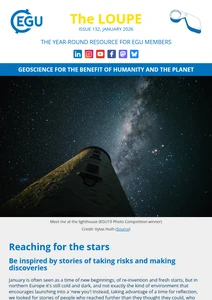President: Daniel Farinotti
(Emailcr@egu.eu)
Deputy President: Carleen Tijm-Reijmer
(Email)
ECS Representative: Aakriti Nigam
(Emailecs-cr@egu.eu)
The cryosphere are those parts of the Earth and other planetary bodies that are subject to prolonged periods of temperatures below the freezing point of water. These include glaciers, frozen ground, sea ice, snow and ice. One of the main aims of the EGU Division on Cryospheric Sciences (CR) is to facilitate the exchange of information within the science community. It does so by organising series of sessions at the annual EGU General Assembly, and through the publishing of the open-access journal The Cryosphere. The division awards the Julia and Johannes Weertman medal for outstanding contributions to the science of the cryosphere.
Latest posts from the CR blog
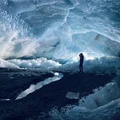
Peak glacier extinction in the mid-twenty-first century
Have you ever wondered how many glaciers will still exist in the future? Or how many glaciers we might lose each year in the coming decades? In our new study (Van Tricht et al., 2025), we shift the focus of glacier modelling from ice volume to individual glaciers. Because every glacier, no matter how small, can matter. Not necessarily for global sea-level rise, but for landscapes, ecosystems, cultures, and communities. Using three independent glacier models, we simulated the future of …
Read more
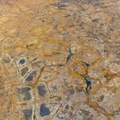
How Citizen Scientists mapped Arctic Permafrost
Cryosphere scientists know it well; the Arctic doesn’t give up its secrets easily. This is especially true when it comes to exploring permafrost -– frozen soils that store centuries of history underground. Keeping an eye on the state of permafrost is more important than ever, as widespread permafrost thaw is a direct result of rising global temperatures. However, monitoring the vast Arctic is not exactly a task you can handle with just a pair of binoculars and a notepad. This …
Read more
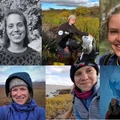
Introducing the new chief editors of the cryo blog
New year, new team! We have some changes in our editorial team and would like to introduce our new chief editors to you today – please say hi to Mack and Leah! Mack and Leah will be taking over the role as chief editors from Maria Scheel, Lina Madaj, Emma Pearce and Loeka Jongejans. You might have read their names before as authors or editors on some of our very recent posts. From January onwards, Mack and Leah will be …
Read more
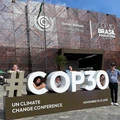
Speaking Up for the Cryosphere at COP30
During the climate negotiations at COP30, the global importance of a warming cryosphere was stressed in various formats. The UNFCCC Conference of Parties (this year’s COP30) marks the yearly global climate negotiations which formed the aim to limit global warming to well below 2 °C (the 1.5 °C target) with the Paris Agreement at COP21 in 2015. These huge conferences of ten thousands of people feel in many ways like a black box. Multiple negotiation tracks are running in parallel …
Read more
Recent awardees

- 2025
- Julia and Johannes Weertman Medal
The 2025 Julia and Johannes Weertman Medal is awarded to
Shin Sugiyama for outstanding work in the field of glacier dynamics and ice-water interactions, including seminal contributions to our understanding of lake-calving glaciers and ice-dammed lake outbursts.
Read more

- 2025
- Outstanding Student and PhD candidate Presentation (OSPP) Award
The 2025 Outstanding Student and PhD candidate Presentation (OSPP) Award is awarded to
Antoine Savard A new parameterization of dilation using GODAR
Read more

- 2025
- Outstanding Student and PhD candidate Presentation (OSPP) Award
The 2025 Outstanding Student and PhD candidate Presentation (OSPP) Award is awarded to
Katie Lowery Drivers of Ice Shelf Basal Melt on Pine Island Glacier: Ocean vs Geometry?
Read more

- 2025
- Outstanding Student and PhD candidate Presentation (OSPP) Award
The 2025 Outstanding Student and PhD candidate Presentation (OSPP) Award is awarded to
Leah Sophie Muhle Towards a new method for estimating englacial attenuation
Read more

- 2025
- Arne Richter Award for Outstanding Early Career Scientists
The 2025 Arne Richter Award for Outstanding Early Career Scientists is awarded to
Brice Noël for outstanding research in the field of the surface mass budget of ice caps and ice sheets, based on regional climate modelling.
Read more
Current issue of the EGU newsletter
In our January issue, we are choosing to reflect on the ambition and risks of science - not a new year, new you, but rather a steady determination to discover, based on our existing, deep wells of curiosity. Catarina Aydar talks about how exploration sometimes goes hand-in-hand with tragedy with the story of the first attempt of a teacher, Christa McAuliffe, to go to space, onboard the ill-fated Challenger, whilst Sabrina Minnick, shares the triumph of Jacobus Kapteyn revealing the proper motion of the stars over 100 years ago. Astrobiological chemist Silke Asche talks about her work searching for life on other planets, and András Zlinszky shares his tips for your best EGU General Assembly yet! Also don't miss our on all the upcoming webinars, newest publications, a brand new EGU open access journal, and a job vacancy in the EGU Executive office in Munich, Germany!
All this and much more, in this month's Loupe!
Read more










